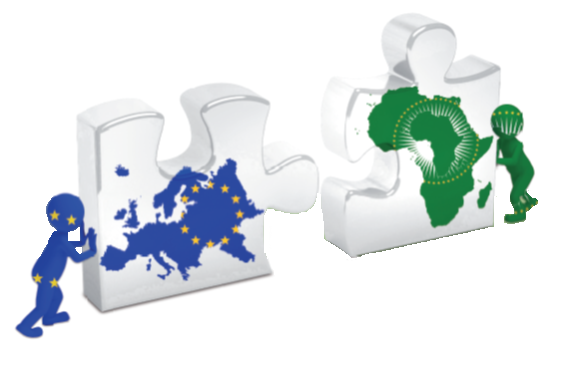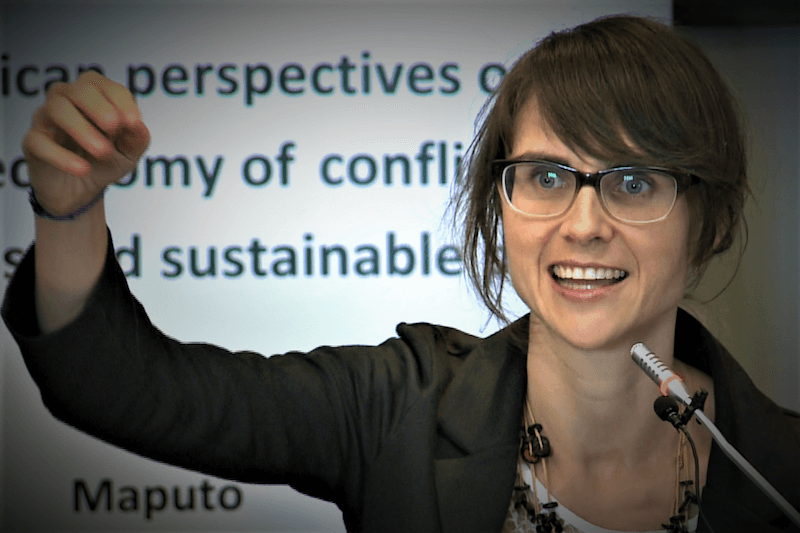A woman’s view of Europe-Africa relations
As a mother, my point of view on the relations between Europe and Africa is one of outrage. Outrage at the lack of opportunities for our children here, due to the poor governance by African leaders, poor governance which is tolerated and even encouraged by authorities in Europe.
Cut-price education, dilapidated healthcare and bankrupt pensions are all holding African populations in glaring poverty, driving those who survive to exodus and exile, and making migration the best solution available to African families.
"Young Africans are left with lack of opportunity, condemned to eke out a living in the informal economy, […] or to seek hope and happiness elsewhere."
As a professional, Europe-Africa relation leave me frustrated. Frustrated at the lack of opportunities available for young entrepreneurs to create jobs, because the markets are obstructed by monopolies granted to foreign multinationals. At the same time, African states continue, with the blessings of Europe, to produce poor quality human capital. This leaves our young people uncompetitive in the labour market of today’s globalized world, and therefore condemned to eke out a living in the informal economy, surviving amid violence and banditry, or to seek hope and happiness elsewhere, namely in Europe.
My viewpoint as a political agent on the relations between the two continents is one of a woman overwhelmed. Overwhelmed by the hypocrisy of Europeans, who pretend not to know that the development aid they send never reaches our populations, but most often ends up siphoned into the accounts of African heads of state and members of government.
Europeans turn a blind eye to the often toxic role of France in the private preserve of its former colonies on the continent, by maintaining the impoverishing monetary dependence of the countries in the zone of the CFA franc [Communauté financière d'Afrique also known in English as African Financial Community] and propping up leaders who are illegitimate, corrupt and kleptocratic, but who fall all over themselves to serve French interests. At the same time, these same leaders stifle the aspirations of democracy and freedoms of their people, of whom 75 per cent are under the age of 35.
This Europe claims to be afraid of migrants, who make a significant contribution to the economies of their host countries—8.9 per cent of GDP in Italy (link in English)—and are a boon to mitigate Europe’s twin problems of increasing age and decreasing fertility. This same Europe wants to choose and train the hands and brains it needs, while leaving the others out in the cold, at the mercy of slave-trading people smugglers, or languishing in the detention centres that it finances in Libya.
“Europe must actively support institutional reforms to allow free and transparent elections and the emergence of a new leadership in Africa.”
Are Europe-Africa relations destined to be imbalanced, unequal and impoverishing for Africans? I do not believe so. But to avoid the risk of violence exploding by 2050, in a scenario where 800,000,000 young Africans arriving on the labour market do not find work or the chance of improving their lives, both sides —Europe and Africa—need to undertake courageous reforms, immediately.
One possibility for Europe is to actively support institutional reforms to allow free and transparent elections (in line with international standards) and the emergence of a new leadership in Africa. Such a leadership would be willing and able to work for the interests of their constituencies, while paving the way for a renegotiated, win-win partnership between Africa and Europe.
Another possibility consists of ending all the aid and support from the European Union to African states, forcing African leaders to face up to their responsibilities or face the purging anger of their own people.
It is all a question of political will and courage, on both sides of the Mediterranean. Which path will we choose? ###
Nathalie Yamb is the Executive Advisor to the Chairman of LIDER (parliamentarian opposition party, Côte d’Ivoire). She is a human resources senior executive and a strategy, talent and communication consultant. With her experience she is also contributing to the regional activities by FES in Africa on political feminism, as participant to a regional workshop held from 28-30 November 2017 in Maputto (Mozambique), aiming to create a reflection group on feminism and new ideas for progressive politics on the African continent.
The views expressed in this article are not necessarily those of Friedrich-Ebert-Stiftung.
About FES Connect
Connecting people, in the spirit of social democracy, we source and share content in English from the German and international network of the Friedrich-Ebert-Stiftung.







